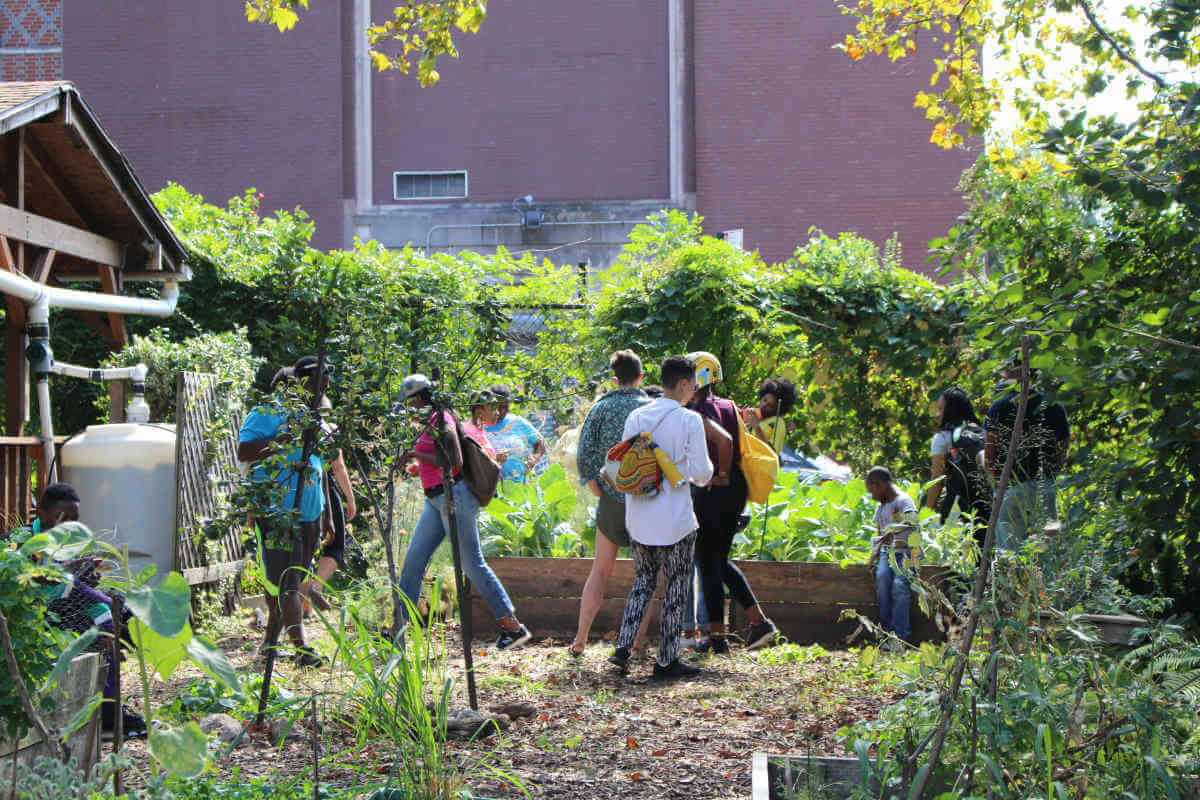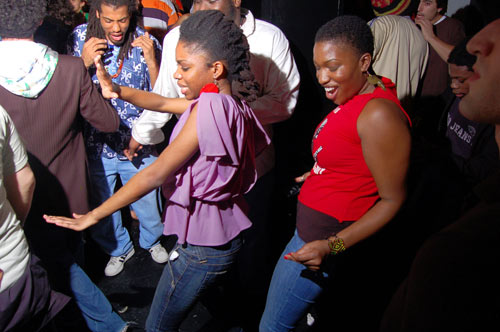In one of the most rapidly gentrifying areas in New York City, a group of residents in the Bedford-Stuyvesant and Crown Heights sections of Brooklyn have come together to organize and open The Central Brooklyn Food Coop (CBFC).
Mark Winston Griffith, executive director of the Brooklyn Movement Center, the organization incubating the CBFC, said resident are “proud to announce the launch of their first-ever ‘crowdfunding’ campaign, with the goal of raising $25,000 by Nov. 22 to support a down-payment for their physical storefront.”
Griffith sees the project “as a way of making ourselves visible again,” adding that “we have the wherewithal and ability to do for ourselves.”
“I just can’t imagine a more powerful statement of our right to be here and to be here in the future,” he said.
A game-changing initiative, Griffith said the Black-led retail food cooperative centers the needs of low- and moderate-income residents and will enable thousands to nourish themselves with healthy and affordable food.
As a consumer-owned coop, Griffith said each member will hold an equity stake in the coop and help lower operational costs through an investment fee and three hours of monthly labor.
Organizers have been laying the groundwork for the coop for six years, ensuring that the initiative involves and builds the leadership of long-term residents of Bedford-Stuyvesant and Crown Heights.
Currently, they are seeking a location and plan to open their doors to the in Spring 2020, “and this campaign will be essential to securing a space,” Griffith said.
Since the coop began accepting invested members in January 2019, he said 46 members have joined, demonstrating early buy-in even before the space is secured.
“We want our children to have a place to go where they can learn and enjoy food,” said Rae Gomes, founding member of CBFC. “We want to continue this effort to support black farmers and other farmers of color.
“We want to increase political education in our community and cooperative economics in our community,” she added. “This is not just a food store. This is an effort of community self-determination.”
Once open, Griffith said the Central Brooklyn Food Coop will bring “affordable, high quality food and community programming to a neighborhood hit hard by gentrification, where four of five food stores are bodegas.”
He said the coop will focus on partnering with local farms and producers, owned and run by people of color “to offer fresh, quality food at significantly lower prices than a traditional grocery store, thanks to the member-owned model.”
Griffith said this model has been proven successful by the Park Slope Food Coop, founded in 1973, and similar coops throughout the country.
“When we say that we’re black led and community led, we don’t just mean the people who own the store, we also mean the local business owners selling baked goods or jam,” said Ashleigh Eubanks, organizing and staff member at Rise Boro Community Partnership, an organizational partner to the CBFC. “And, there are a lot of community gardeners that produce a lot of good quality, high volume produce to sell. We want to buy from them. It’s really about how we can leverage support for people who don’t have access to larger markets, and also going beyond Brooklyn and supporting local, small, family farms, that also struggle to compete.”
By establishing the Central Brooklyn Food Coop, Griffith said residents are coming together to achieve food sovereignty in an area that has been called a “food desert”.
“By providing access to food that is affordable, fresh and welcoming, regardless of income, residents are taking matters into their own hands to ensure that they and their neighbors are nurtured and celebrated through food,” said Griffith, adding that the campaign is CBFC’s first major community fundraising project and public push.






























